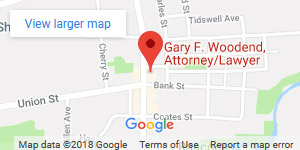Personal Injury
A personal injury is any harm caused to a person, such as a broken bone, a laceration, sprain, strain, serious bruise or other bodily injury. In most cases, your injury must show some sign of visible or otherwise ascertainable and verifiable damage, such as through an X-ray, CT scan or MRI. A common example would be a herniated disc as a result of an auto accident or a slip and fall accident. In all but the rarest of cases, you will not be able to recover for emotional problems you experience as a result of the incident, unless there is also an associated physical manifestation of the injury.
To be successful in recovering for your injury, you have to prove that the party responsible for your injury was negligent, and more negligent than you were. An exception to this rule is worker’s compensation claims where negligence or fault are not a part of the case.
Each state has a statute of limitations that restricts the amount of time a person has to file a claim as a result of a personal injury. In New Jersey, that time period is two years. If your claim is against a public entity, that period is reduced to 90 days, so be careful and do not delay seeking legal advice. The looming deadline of the statute of limitations is why a personal injury attorney should be contacted early on in the process.
A typical fee arrangement in New Jersey is for the attorney to get one third of the settlement amount. The client receives two-thirds of the settlement amount, less out of pocket expenses incurred by our office for filing fees, expert witness fees, etc. If for some reason there is no recovery, the attorney would typically pay the expenses. This is part of the reason attorneys screen cases so carefully upfront.
Although we do not handle personal injury cases in our office, we can often refer you to a reputable attorney in the area that does handle personal injury cases.




